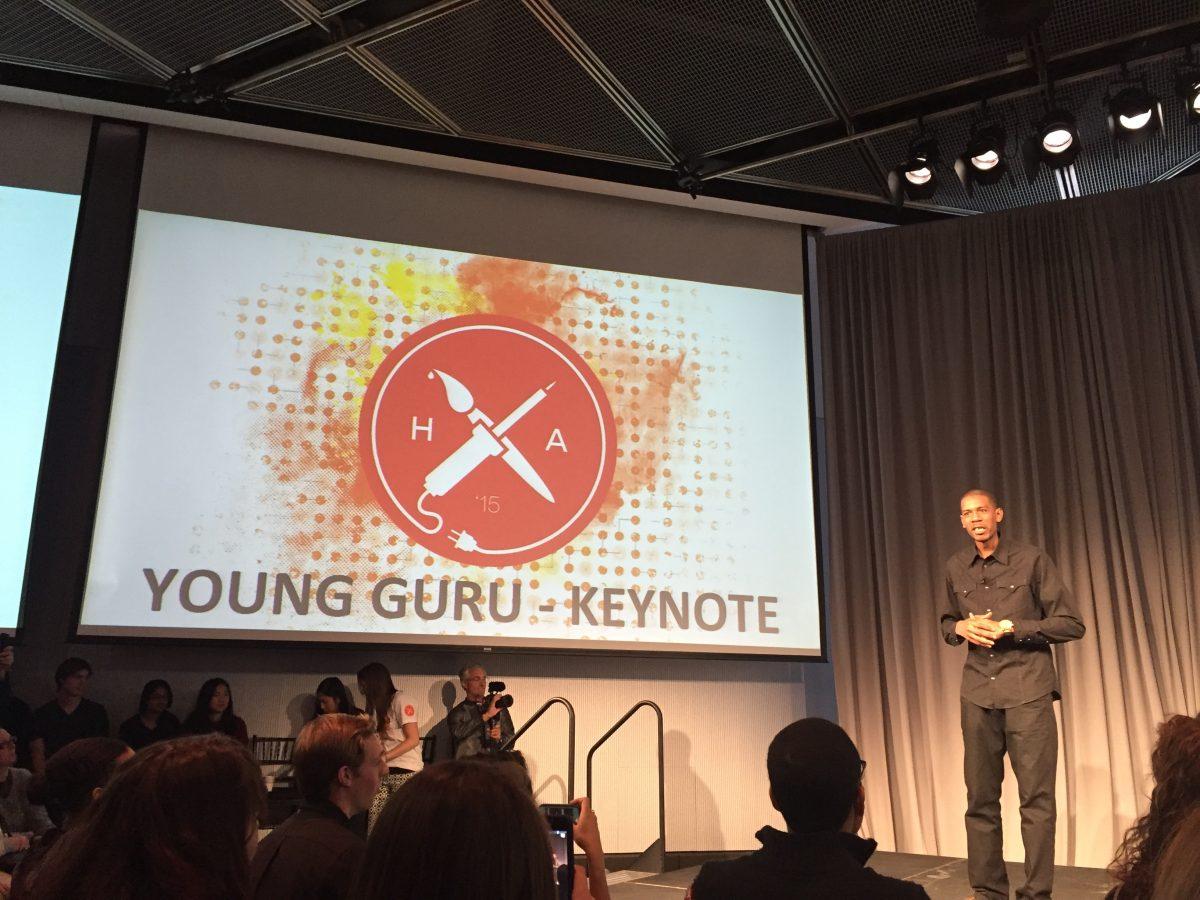Wellesley College’s relationship with the Massachusetts Institute of Technology (MIT) works for a number of reasons. Although the former is a highly respected liberal arts school and the latter has implemented a more purely skills-based curriculum focused on technology, the cooperation of the two schools has fostered a mutually beneficial relationship. Traditionally, arts and technology have brought separate strengths and weaknesses to the table; the past weekend, that is exactly what MIT’s 3rd Annual Hacking Arts Conference strove to accomplish.
A collaboration between MIT, The New England Conservatory, The School of the Museum of Fine Arts and Berklee College of Music, The Hacking Arts Conference brought together a number of creative leaders, business professionals and technology start-ups from around the world to generate ideas, disrupt and innovate. Hacking Arts 2015 was bigger than ever; the event’s incredible growth was evident when tickets to the conference sold out days before the conference even began.
This year, for the first time, Hacking Arts was divided into a two-part weekend-long event instead of the usual single, all-encompassing admission that had occurred in the past. Last weekend, the Saturday conference was followed directly by the hackathon that took place Saturday evening and went throughout the night into mid-day Sunday. Though this necessary distinction required separate ticketing reservations for each event, both events reached capacity.
Undergraduate and graduate students alike attended the conference, and the diversity of the Hacking Arts’ audience was clear as university professors, other academics and outside professionals came to the MIT Media Laboratory in Cambridge, Massachusetts to discuss topics in music, design, visual arts, fashion, virtual reality, gaming, performing arts and film and video.
The event was organized to feature eight panels in four different sessions. Attendants could choose between the two panels presented at any given time. Each panel had a moderator who was knowledgeable on the topic being discussed along with four to five panelists who were deemed leaders and innovators in their respective fields.
Once the check-in process and complimentary breakfast had concluded, the first panel of the day started off with a bang that set the tone for the rest of the weekend. As I chose to sit in on the music panel titled “New Tech: Threat or Boon to the Music Industry?” I was amazed at the very distinctive personas present onstage. Of the five speakers and single moderator, it was extremely interesting to see the dynamic between each panelist, especially when one speaker was an executive from Spotify, a company with a very controversial presence in the music industry. Also on the panel were two music managers turned engineers that founded their own music company and record label, a professor from the Berklee College of Music that teaches extensively on the evolution of the music industry, who is working firsthand with English pop star Imogen Heap and British superstar M.I.A.’s former live session drummer who left a career touring on the road playing shows to pursue a business degree at Harvard Business School.
The diversity in panelists as well as the audience in attendance only made for greater, more progressive discourse on how to disrupt the status quo, innovate and evoke lasting positive change in the world. In between each panel, the events only became more appealing as the day was interspersed with active, creative demonstrations such as performances by the unconventional Brooklyn Ballet.
At the halfway point of the conference, attendees had the opportunity to interact with artist technology firsthand as a Tech Expo provided the chance for people to see what kinds of ideas were turning into reality and leaving their mark on the world.
The day ended with a special performance by the Brooklyn Ballet as they showcased their technology-infused costumes perfectly timed to the sound of the music and movement of the dancers’ agile bodies. Before the end of the conference, audio engineer, record producer and self-proclaimed “nerd” DJ Young Guru gave the keynote closing speech on the event. For those who are not familiar with DJ Young Guru, he is the man behind Jay-Z’s sound and has been highly praised by the Wall Street Journal and called “the most influential man in hip-hop.”
The Boston area-based institutions all managed to host a successful and fun weekend-long event,where innovation was inherent throughout the entire duration. Though the conference is only three years old, it is growing rapidly in attendance and influence, as evidenced by the turnout of this past weekend. We can only hope to see what Hacking Arts 2016 will have in store for innovators, creators, technology-lovers and artists alike in the upcoming year.
Photo by Sarah Cohen ’17, Staff Writer



